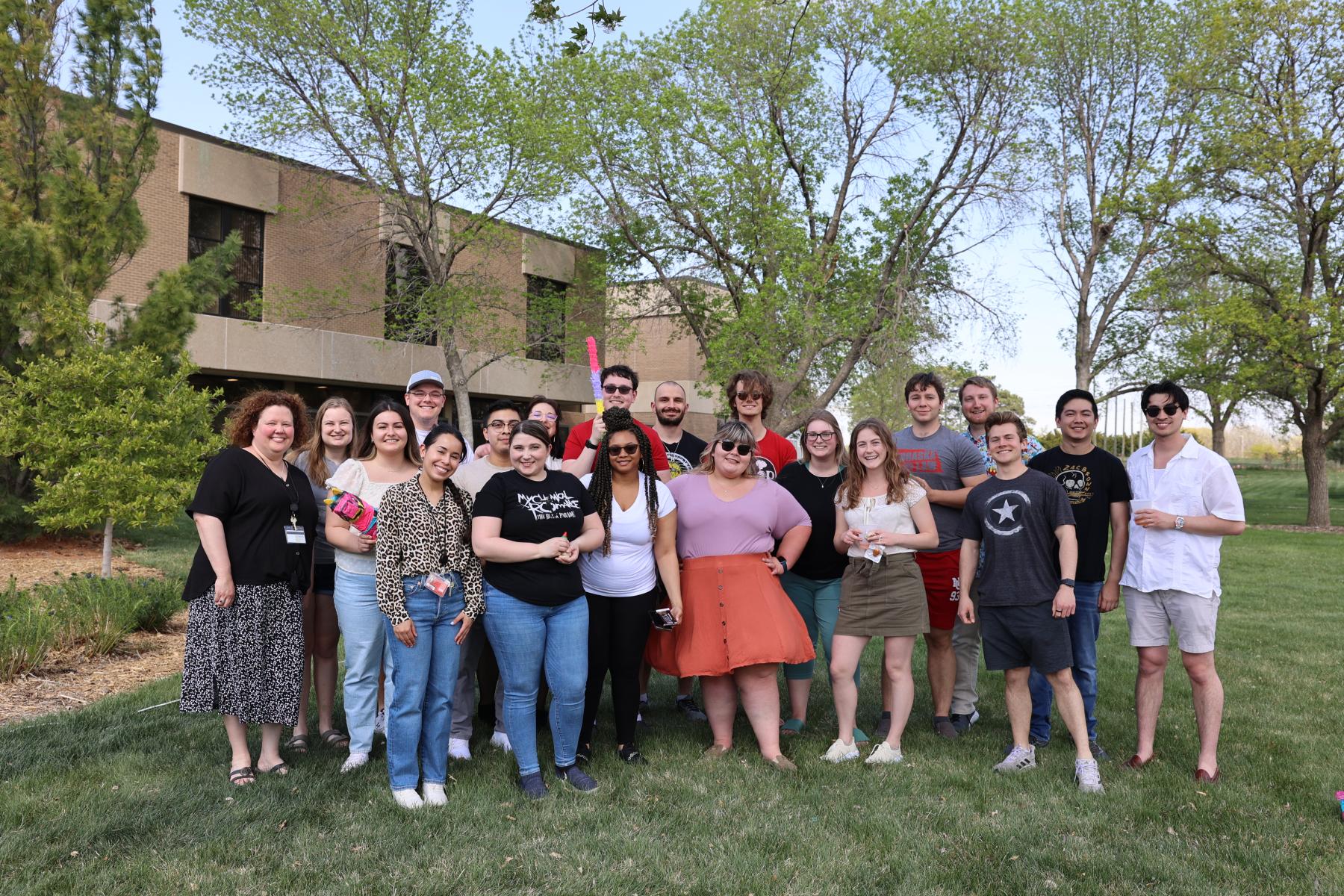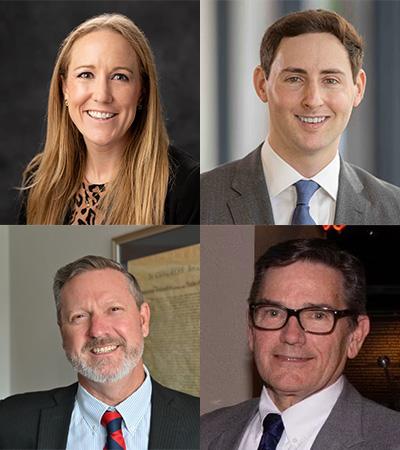
Alumni News | September 2023
25 Sep 2023
Every month, we bring you the latest updates from our alumni near and far.
ALUM NOTES
Kristen J. Hassebrook, ’11, an associate at Mueller Robak, replaces Heath Mello as NU’s lead advocate at the Capitol. She also was named associate vice president for government relations.
Daniel L. Marks, ’16, was named partner at Pace Selden Gilman Marks in Phoenix.
Todd W. Lancaster, ’98, has been named the new chief counsel at the Nebraska Commission on Public Advocacy.
ALUM IN THE NEWS
Dawson County District Judge James E. Doyle IV, ’81, has been named the recipient of the 28th Annual William H. Rehnquist Award for Judicial Excellence. The award honors state court judges who demonstrate "integrity, fairness, open-mindedness, knowledge of the law, professional ethics, creativity, sound judgment, intellectual courage and decisiveness."
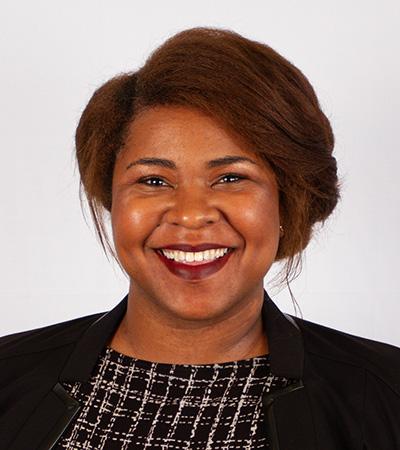
Mangram, '24, named Inspire Scholarship finalist
20 Sep 2023
Shannon Mangram, ’24, has been named as a finalist for the Inspire Scholarship through the 2023 Inspire Lincoln awards.
The Inspire Lincoln awards celebrate women who have excelled as leaders and role models. These women are chosen for their success-driven work ethic and the commitment, vision, and talents that make them leaders. The Inspire Scholarship is awarded to a Lincoln-area female high school or college student who has contributed to her community, excels in the classroom, and has great career aspirations.
Mangram is highly involved in the Lincoln community and takes part in a number of organizations at the College of Law. She was part of a group of students who re-established the Black Law Students Association (BLSA) at Nebraska Law in 2022 and is a member of both the Multicultural Legal Society (MCLS) and the Student Bar Association (SBA).
This year, Mangram is also the president of the Community Legal Education Project (CLEP). She said her involvement with CLEP has been especially impactful, as she’s been able to channel her passion for removing barriers to information. She said that having a basic understanding of the law can make a big difference if an individual gets into legal trouble or must make an appearance in court.
“There’s a lot of ambiguity around the law in the community, and I think everyone deserves a baseline legal education,” she said.
One of the projects organized by CLEP is an outreach activity for Constitution Day each September. This usually consists of Nebraska Law students visiting middle school classrooms to educate students on the Constitution and other areas of the law, as well as the importance of civic participation. Mangram can recall one Constitution Day when one eighth-grader was especially engaged and asked many questions.
“It's moments like that for me that make it really clear that people want this information,” she said. “And sometimes the way it's packaged makes people either more engaged or less engaged.”
The goal of providing an engaging, meaningful legal education to those who would otherwise not have access to it is what drives Mangram. She is especially interested in seeing how high schoolers engage with information on their individual rights.
“The more educated and informed they are, the better our system will be,” she said.
The Inspire Lincoln Award winners will be announced on September 20, 2023.
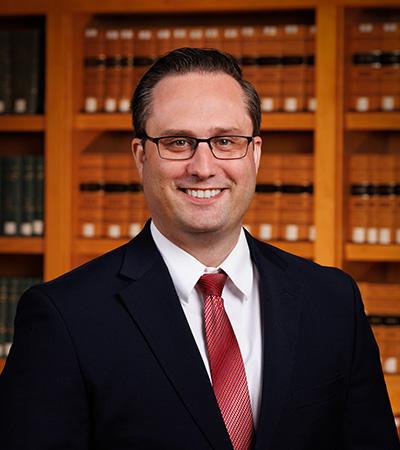
Johnson featured on Election Law Blog
19 Sep 2023
Professor Brandon Johnson's essay "Election Aggrandizement" has been published as a guest post on the Election Law Blog.
The essay discusses the ways in which two cases decided at the end of this Supreme Court term--Allen v. Milligan and Moore v. Harper--seemed to reverse a trend in the Roberts' Court's election law jurisprudence. Prior to these cases, the Court had signaled a willingness to retreat from deciding election law cases, but the holdings in Moore and Milligan significantly expanded the Court's ability to shape state election regulations.
Professor Johnson joined the Nebraska Law faculty earlier this year. His research sits at the intersection of administrative law, the separation of powers, and the law of democracy. His writing focuses on the ways democratic institutions, including Congress, the Presidency, and the Administrative State interact, and the ways in which the courts attempt to shape those interactions.
Read the article here: https://electionlawblog.org/?p=137909.
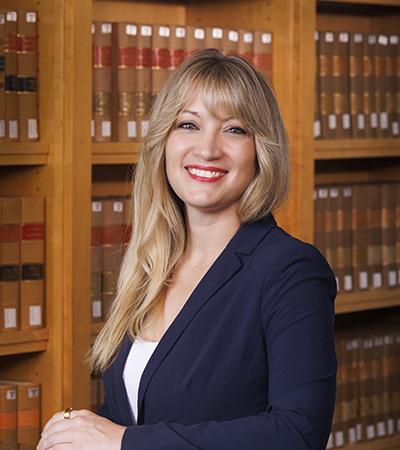
Jefferis appointed to Chancellor's Commission on the Status of Women
19 Sep 2023
Professor Danielle Jefferis has been appointed by Chancellor Rodney Bennet to serve on the Chancellor's Commission on the Status of Women as a member of the faculty council. Jefferis will also advise the Commission's student council.
The purpose of the commission is to enhance the status of all women at the University of Nebraska-Lincoln by advising the Chancellor on issues pertaining to gender equity and on specific concerns of women faculty, staff and students at the university.
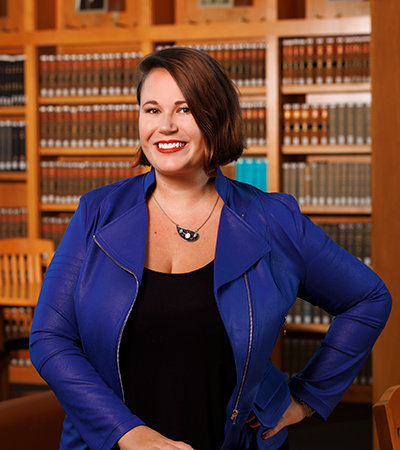
Magilton named Scowcroft National Security Fellow
13 Sep 2023
Elsbeth Magilton, '11, has been named a Scowcroft National Security Fellow at the Eisenhower Center for Space and Defense in the U.S. Air Force Academy for the 2023-2024 academic year. At the College of Law, Magilton serves as the Director of Externships, Executive Director of the Space, Cyber, and Telecommunications Law programs, and Adjunct Professor of Law at the College of Law.
The Eisenhower Center provides students and faculty with unique opportunities to participate in research and policy discussions on the future of American security through first-hand contact with senior leaders and experts in the military, civilian government, and private sector from the United States and major space-faring nations. Building on this foundation, the Eisenhower Center examines challenges to America’s national security across other frontiers of technology development to include cyber security and developments in hypersonic delivery vehicles.
Magilton's work relating to the fellowship will center on drawing analogies between space law and the international nuclear regime to develop concepts for innovative legal instruments that could bridge the gap for aging and weakening agreements. She will visit the Academy in the fall and spring to guest lecture in several courses and attend conferences.
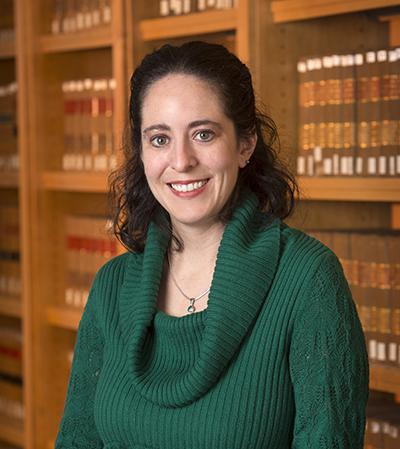
Blankley publishes article in Alternatives to the High Cost of Litigation
12 Sep 2023
Professor Kristen Blankley has published Coinbase v. Bielski - More than a Case About Stays for Arbitration Appeals? in the September issue of Alternatives to the High Cost of Litigation.
The case considers the very technical question of the status of district court litigation when a party has the statutory right under the Federal Arbitration Act—the FAA—for an immediate appeal to a federal court of appeals.
Professor Blankley teaches and researches in the areas of alternative dispute resolution, legal ethics, and at the intersection of ethics and dispute resolution.
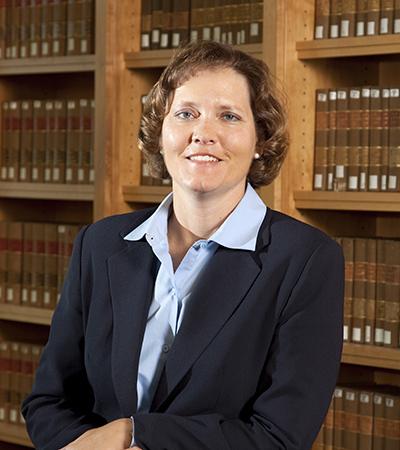
Medill publishes updates to Employee Benefits Textbook for SECURE Act 2.0, other developments
12 Sep 2023
Professor Colleen Medill has published updates to her law school textbook, Introduction to Employee Benefits Law: Policy and Practice (5th ed. 2018). These updates include the following new legislative and Supreme Court developments:
- SECURE Act 2.0 and SECURE Act 1.0 changes to the qualified plan rules
- New material on the No Surprises Act
- New material on pooled employer plans and association health plans
- Revised and streamlined material on the Affordable Care Act
- New material on group health plans after Dobbs
- New material on digital assets as 401(k) plan investments
- The new regulations on fiduciary considerations of ESG factors in selecting plan investments and exercising proxy voting rights
- The Supreme Court’s decisions in Hughes, Thole, and Rutledge
- Dollar amounts for pension and welfare plans in 2023
- A statutory supplement with selected provisions of OBRA, the ACA, and the No Surprises Act. The update also includes a statutory supplement containing the key provisions of the Affordable Care Act, the No Surprises Act, and other federal laws applicable to group health plans sponsored by employers.
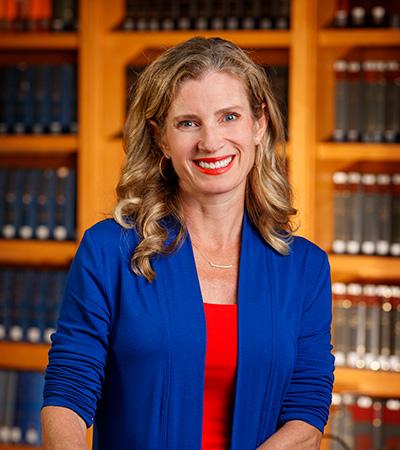
Paxton presents at NACC Conference
12 Sep 2023
Lecturer Michelle Paxton, '02, presented at the National Association of Counsel for Children (NACC) Conference last month. She spoke on two different topics, Reflective Practice: Leading from the Inside Out and Preventing Legal Deserts in Our Rural Communities: Insights from a Child Welfare Attorney Fellowship.
This year, the NACC Conference aimed to recognize "that all system actors have a shared responsibility to promote family integrity, center the voices and experiences of individuals with lived expertise, engage in authentic partnerships, and actively work towards equity and justice."
At Nebraska Law, Paxton is the director of the Children's Justice Clinic and the Children's Justice Attorney Education Program and a lecturer. She has presented comprehensively on all aspects regarding juvenile court including the Indian Child Welfare Act, Termination of Parental Rights, Expert Witness Testimony in Juvenile Court, and Observing Development in Young Children.
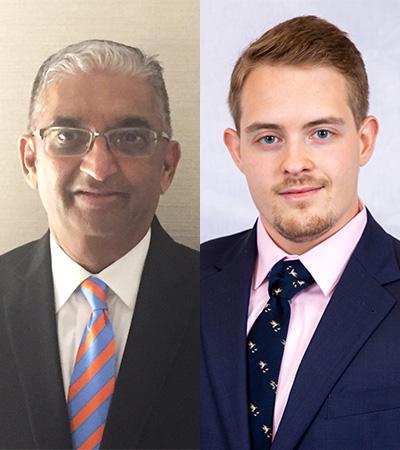
Mentorship Spotlight: Sheth, '93, and Nieto, '25
08 Sep 2023
Sandeep Sheth, ’93, and Joseph Nieto, ’25, are a pair in the Nebraska Law Mentor Program. Their shared connection to the college has led to an insightful, supportive mentorship that leaves a lasting impact.
Sheth has worked for Disney, Capital One, and TD Ameritrade, and is now senior legal counsel at PayPal. He said he hopes to communicate to Nieto what he calls the “stacking of skills”, which involves taking skills you bring with you to law school and making them relevant in a legal context. This advice has been especially impactful in Nieto’s approach to the interview process.
“Sandeep has been amazing at giving insight into what interviewers are looking for, and what I should be discussing and ready to discuss in interviews as well,” Nieto said. “He's been very helpful.”
Sheth also finds their bi-weekly conversations enlightening, as they allow him to stay engaged with the college and get feedback from Nieto on his own ideas.
“What I’ve noticed talking to Joseph is that there is a breadth of knowledge that younger attorneys bring to the table that’s phenomenal,” he said. “I'm really grateful that the law school has this program, otherwise, I never would have met Joe.”
Their talks also give Sheth a better understanding of the current academic environment and how new lawyers are thinking about their careers.
“That, to me, has been invaluable,” he said. “I would not have any other avenue of gaining that knowledge or that expertise.”
Nieto said one of the most significant lessons he’s learned from Sheth is how to stay motivated without growing pessimistic. Even though one may not get a specific position or achieve a certain goal, it's important to remember that there are still many opportunities available.
“Sandeep’s journey has been very motivating because he's worked at many great places doing a lot of different things,” he said. “And he still does a lot of pro bono work and puts himself out there to help people.”
The program has been especially impactful to Nieto as a first-generation law student. Trying to navigate law school without family members in the field can be difficult, he said, and Sheth has made all the difference.
“Having that sort of role model to look up to and to gain that wisdom from is indispensable,” he said. “You can't learn that in a classroom.”
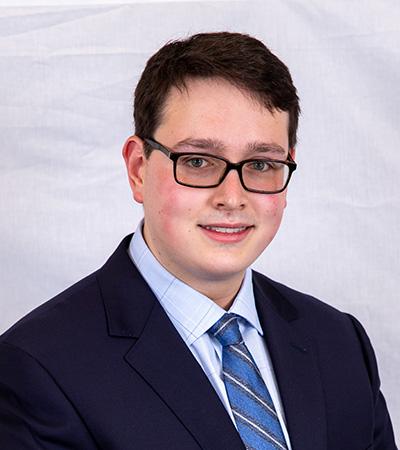
Hispanic Law Student Association fosters community at Nebraska Law
08 Sep 2023
In the last two years, a number of new student organizations have been founded at the College of Law that focus on community and culture. This series highlights the creation and activity of these groups. The first segment features the Hispanic Law Student Association (HLSA).
During the 2023 spring semester, a group of Nebraska Law students came together to form HLSA, the college’s chapter of the National Latino/a Law Student Association. This National Hispanic Heritage Month, HLSA President Erik Strickland, ’25, reflected on the organization’s formation and future.
Strickland, one of the organization’s founding members, agreed with his fellow students that there was a need for a student organization dedicated specifically to Hispanic and Latino/a students.
“It may not be the largest minority body at the law school, but it is still an important one,” he said.
Strickland saw the potential benefit for the student body and college community in having an organization that promotes awareness and appreciation of Hispanic culture. Along with distributing information, the group also provides support to Hispanic students at Nebraska Law.
“HLSA gives support to people not only through networking events, but also by giving them the ability to connect with people from the same background,” he said.
After the first meeting of the semester, Strickland said he is excited by the interest he's seen from the new 1L class.
The organization planned a successful Cinco De Mayo celebration this spring, complete with food, games, and a piñata. The event brought together over 40 students to celebrate and build community. Strickland said he hopes HLSA organizes similar events in the future and encourages all Nebraska Law students to attend.
“We provide a place for people to celebrate the culture while introducing it to those who might not know a lot about it,” he said. “It’s not just for Hispanic students, it’s for everyone.”
The National Latino/a Law Student Association (NLLSA) focuses on advancing Latino/a academic success and emphasizing a commitment to community service. It also looks to address the legal issues affecting Latinos/as around the nation.
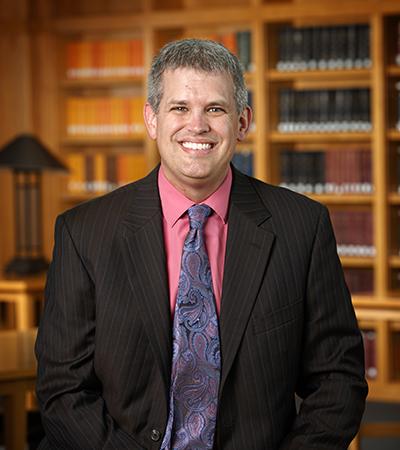
Stohs selected for 2023-24 NSBA Leadership Academy
30 Aug 2023
Clinical Associate Professor Brett Stohs has been selected to participate as a fellow in the 2023-24 Nebraska State Bar Association (NSBA) Leadership Academy. The academy aims to develop the leadership skills of participants to allow them to make greater contributions to the legal profession and their community.
Professor Stohs is a clinical associate professor of law and the Cline Williams director of the Weibling Entrepreneurship Clinic at the College of Law. His areas of interest include corporate and general transactional law, as well as intellectual property. His research relates to using mind-mapping techniques to optimize client assignments to student participants in a live-client clinic.
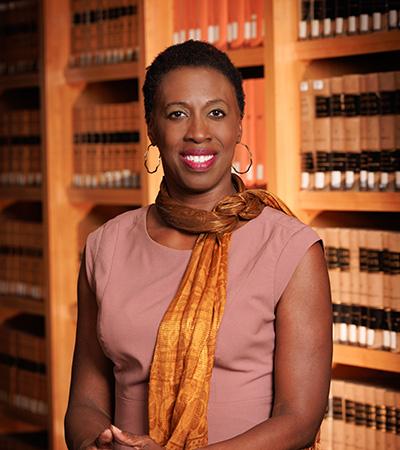
Sheppard named Vice-Chair of NCAA Research Review Board
30 Aug 2023
Lecturer Christal Sheppard has been named Vice-Chair of the National Collegiate Athletics Association (NCAA) Research Review Board (RRB). The RRB is an independent committee that oversees NCAA research for compliance with federal regulations regarding human subject research.
Sheppard previously served as a board member on the RRB. She brings a background in athletics and a commitment to ethical research conduct to the role.
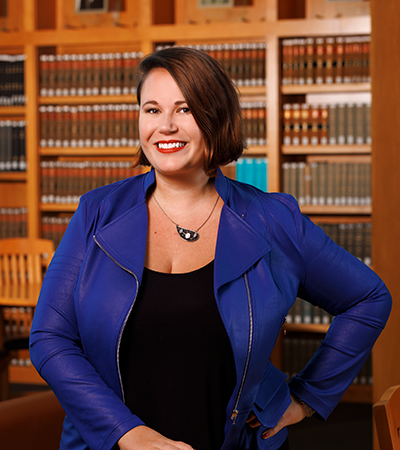
Magilton, Nebraska Deterrence Laboratory recieve University of Nebraska Collaboration Initiative Grant
30 Aug 2023
The Nebraska Deterrence Laboratory has been awarded a University of Nebraska Collaboration Initiative Grant for their project, "Multi-Actor Risk Analysis Methodology." Elsbeth Magilton, '11, is a member of this team and serves as the Director of Externships, Executive Director of the Space, Cyber, and Telecommunications Law programs, and Adjunct Professor of Law at the College of Law.
Other members of the laboratory include Dr. Deanna House, Dr. Tyler White, Dr. Michelle Black, and Dr. Lana Obradovic. The lab aims to help agencies and organizations across the government and military better anticipate emerging national and international security challenges and deter future threats. The team is developing and testing tools that can help inform decision-making and analysis for national strategy.
This award allows them to continue their work, and most importantly, continue the work of their critical PhD and graduate students. Contributors and collaborators include faculty and students from the University of Nebraska at Omaha (UNO) and the University of Nebraska-Lincoln (UNL).
The full Nebraska Deterrence Laboratory team
- Michelle Black, Associate Professor of Political Science at UNO, Security Innovations Academic Program Director and Research at NCITE, and NSRI fellow
- Deanna House, Assistant Professor of Information Systems and Quantitative Analysis at UNO and NSRI fellow
- Lana Obradovic, Director of International Studies and Associate Professor of Political Science at UNO, and NSRI fellow
- Tyler White, Associate Professor of Practice of Political Science and Director of National Security at UNL, and NSRI fellow
- Elsbeth Magilton, Director of Externships and the Executive Director of the Space, Cyber, and Telecommunications Law, University of Nebraska College of Law at UNL, and NSRI fellow
- Josie Nelson, Graduate Assistant and Student at UNO Steve Saunders, Research Assistant at UNO
- Rachel Urban, Graduate Assistant and Student at UNL Medicine Flower Blue Star, Graduate Student at UNO
- Miranda Barna, Undergraduate Student at UNO
- Jimmy Hang, Undergraduate Student at UNO
- Cameron Carpenter (UNO Contributor)
- Blake Hopping (UNO Contributor)
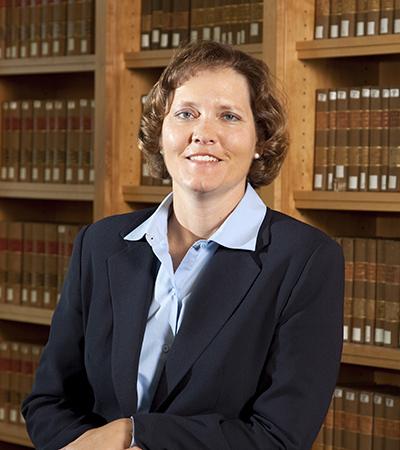
Medill presents on artificial intelligence tools at SEALS Annual Meeting
30 Aug 2023
Professor Colleen E. Medill presented her work-in-progress on integrating artificial intelligence tools such as ChatGPT, lawyering skills, and professional identity formation for law students under ABA Standard 303 at the Annual Meeting of the Southeastern Association of American Law Schools (SEALS).
The forthcoming law review article that formed the basis for her presentation will be published in a special symposium issue of the St. Thomas University Law Review on Professional Identity Formation for Law Students Under ABA Standard 303.
Professor Medill's presentation explored how law professors can integrate the use of artificial intelligence (AI) tools such as Chat GPT into traditional classroom lawyering skills exercises while also assisting students in professional identity formation. The main point of her presentation was that a lawyer's personal use of AI tools in the practice of law is an essential component of a lawyer's professional identity that must be intentionally developed as a law student before entering the practice of law. Moreover, law students must be taught how to constantly evaluate the appropriate use of AI as the technology evolves in future years.
Professor Medill's presentation focused on four "best practices" principles for law professors to use when integrating AI tools into traditional lawyering skills exercises to assist students in forming their own unique professional identities as future lawyers. Professor Medill also provided illustrations from her Developing Professional Skills: Property online teaching modules for law students (West Academic 2023) and her forthcoming first year casebook for law students, Experiencing Property (West Academic 2024).
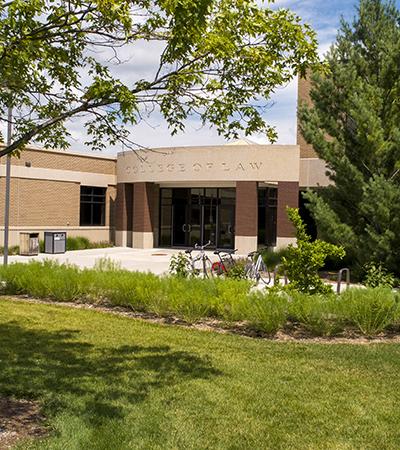
New law clinic at Nebraska will defend First Amendment rights
24 Aug 2023
The University of Nebraska College of Law is establishing a First Amendment Clinic, thanks to a generous gift from the Stanton Foundation.
The clinic will support First Amendment rights by focusing on local and regional cases concerning freedoms of speech, the press, assembly, and petition. It will also enhance law students’ understanding of the First Amendment and serve as a resource for organizations, students, journalists, and citizens defending First Amendment rights.
“Our clinical programs help students develop skills as they work on real cases and are a highlight in many students’ law school careers,” said Richard Moberly, dean of the College of Law. “I’m grateful to the Stanton Foundation for allowing us to create another meaningful way for our students to advance justice and solve problems.”
The First Amendment Clinic will add another clinic to Nebraska Law’s growing number of clinical offerings which includes the Children’s Justice Clinic, Civil Clinic, Criminal Clinic, Debtor’s Defense Clinic, Estate Planning Clinic, Housing Justice Clinic, Immigration Clinic, and the Weibling Entrepreneurship Clinic.
The First Amendment Clinic will be led by Director Daniel Gutman and Assistant Director Sydney Hayes.
Gutman spent several years in private practice litigating constitutional claims, election law matters, and commercial claims, before joining the College of Law faculty. Hayes also has experience in litigation involving complex constitutional issues and business disputes. Both are graduates of Nebraska Law.
“We will defend the First Amendment rights of our clients while at the same time educating students on the intricacies of First Amendment law,” said Gutman. “To do that, we intend for our cases to span the ideological spectrum.”
Nebraska’s First Amendment Clinic will be offered to third-year law students in Spring 2024 but is already seeking clients.
“We’re looking for a wide range of cases and clients,” said Gutman.
More information about the Clinic and how to request an initial consultation is available on the College of Law website.
The Stanton Foundation was created by Frank Stanton, a longtime president of CBS News, to advance First Amendment and democratic values through an informed citizenry. Stanton, a founding figure in modern broadcast news, led CBS News for a quarter century, from 1946 to 1971. During his tenure, he organized the first televised debate in 1960 between Richard Nixon and John F. Kennedy, presided over CBS’s defense of the famous libel action brought by Gen. William Westmoreland, and remained a zealous defender of the First Amendment until his death in 2006 at age 98.
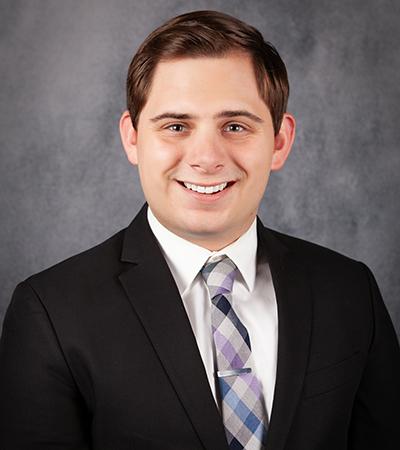
Jensen, '24, is first DTB Agritrade Intern
24 Aug 2023
Turner Jensen, '24, is the first intern in a new partnership between the Clayton Yeutter Institute and DTB Agritrade, a DC-based consulting firm specializing in agricultural trade policy. He spent the summer working on agricultural trade issues in D.C.
Read a Q&A with Jensen from the Yeutter Institute newsletter below.
Can you tell us about your involvement with the Yeutter Institute?
During my first year at Nebraska Law, I had the privilege of meeting Professor Matt Schaefer, the Clayton Yeutter Chair at Nebraska Law who was also my professor at the time. He introduced me to the Yeutter Institute and its impactful work. Intrigued, I joined the Global Trade and Business Think Tank at Nebraska Law, which provided a fantastic opportunity to connect with like-minded individuals interested in international trade. Attending the Yeutter Institute's events was truly enriching, allowing me to learn about diverse research and to network with remarkable people, including Professor Jill O’Donnell, the Director of the Yeutter Institute.
Congratulations on being the first intern at DTB Agritrade! How does this opportunity align with your career goals?
Thank you! It's been an incredibly exciting experience so far. As an intern at DTB Agritrade, I've delved into international trade law and explored various trade issues, not only limited to agriculture. The role has exposed me to abundant resources by prestigious organizations like the World Trade Organization, which has been crucial in expanding my understanding of trade law and deepening my passion for it.
Furthermore, this experience has provided an excellent platform for gaining insights into crucial agricultural issues. I've had the privilege of delving into how both lawyers and non-lawyer consultants can offer valuable support to agricultural producers and exporters through diverse means. This exposure has not only broadened my understanding of trade law but has also ignited a profound passion for this field.
Also, the networking opportunities have been exceptional, helping me explore potential future paths in international trade law.
What challenges have you encountered during your internship, and how have you overcome them?
For starters, coping with the intense heat of Washington D.C., which is crucial knowledge for anyone planning to work here! Moreover, the role demands great attention to detail, as even the smallest error can have significant consequences. To navigate these challenges, I try to stay curious which pushes me to yank myself out of my comfort zone to learn new things every day.
Thankfully, the workload allows for some flexibility, enabling me to pace myself and manage my time effectively. This ensures that, by the end of the day, I am not only able to meet expectations but also find time to rest and recharge.
What are your plans after completing this internship?
I'm currently keeping an open mind about my future plans, but I'm genuinely enthusiastic about working in international trade, particularly international finance. My time at DTB Agritrade has made me more interested in staying within the agriculture industry, given the vast opportunities it presents. Additionally, working in agriculture would allow me to support and advocate for farmers and communities like the one I grew up in, which further adds to the excitement of pursuing a career in this field.
How do you manage to maintain a work-life balance with such a busy schedule?
Balancing work and life effectively comes down to understanding yourself and recognizing your limitations. I think for the most part, self-awareness plays a significant role in finding that balance by finding the best ways to relax and unwind. In my case, working away from home, I’ve found that bringing along familiar comforts from home could be a great way of decompressing and attaining that healthy work-life balance.
Finally, what advice would you offer to other UNL students interested in pursuing opportunities in international trade and agriculture through programs like the Yeutter Institute?
My advice would be to seize every opportunity available during the semester to stand out and get involved in a variety of experiences. For instance, my participation in the Yeutter Institute's Global Trade and Business Think Tank led to my previous role as a research assistant, which ultimately opened the door to my current internship. The right opportunities can truly set you apart and pave the way for a rewarding career. So, be proactive, explore different opportunities, and find unique ways to use your past experiences to tell a story that shows why you fit into the specific positions you are interested in pursuing.
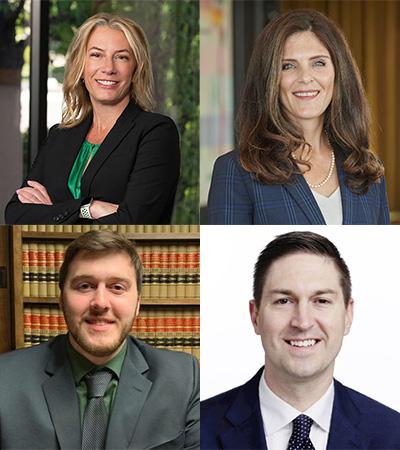
Alumni News | August 2023
23 Aug 2023
Every month, we bring you the latest updates from our alumni near and far.
ALUM NOTES
Lena A. Lucas, ’00, has joined the firm Woods Aitken in its Denver office, focusing her practice on the representation of construction and business clients.
Sarah D. Duey, ’05, has joined Smith Pauley in Omaha, practicing in the areas of estate planning, wealth transfer planning and trust & estate administration.
Nathan K. Heinz, ’21, was named zoning commissioner for York County in Nebraska, in addition to his position as deputy county attorney in York and Polk Counties.
ALUM IN THE NEWS
Garth Glissman, ’09, has been named the Southeastern Conference Associate Commissioner for Men's Basketball by the SEC.
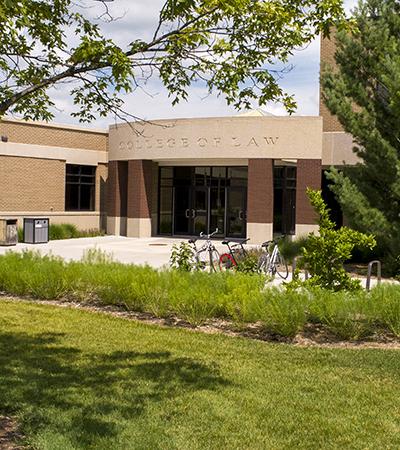
Nebraska Law Welcomes New Faculty
23 Aug 2023
The University of Nebraska College of Law is pleased to welcome six new faculty members. Appointments for Jamie Cooper, Lori Hoetger, Brandon Johnson, Korey Taylor, Daniel Gutman, and Sydney Hayes, began in August 2023.
Jamie Cooper joins the College after practicing law in the areas of family law, criminal defense, and juvenile justice. Prior to joining the permanent faculty, Cooper served as an adjunct professor at Nebraska Law, teaching Pretrial Litigation. She will teach Torts, Family Law, Mediation Advocacy, and Race, Gender & Class in the Law. Cooper received her JD from Northwestern University School of Law.
Lori Hoetger joins the College from the University of Illinois College of Law where she was a visiting assistant professor. Hoetger’s research focuses on how individuals make decisions regarding their legal rights, and the evolving nature of expectations of privacy and implications for Fourth Amendment Law. She will teach Criminal Law, Criminal Procedure, Capital Punishment, and Mental Health Law. Hoetger received her JD with highest distinction and her PhD in Psychology from the University of Nebraska.
Brandon Johnson joins the College from the New York University School of Law where he was acting assistant professor of lawyering. His research focuses on the ways in which government and democratic institutions interact, and the ways in which the judiciary intervenes in those interactions. He will teach Civil Procedure and Administrative Law. Johnson received his JD summa cum laude from Northwestern University School of Law.
Korey Taylor joins the College with research and teaching interests in criminal law and due process, and diversity and inclusion in the law and the legal profession. Prior to joining the faculty, Taylor was an assistant public defender for Douglas County. He will teach Criminal Law, Criminal Procedure, and Criminal Adjudication. Taylor received his JD from the University of Pennsylvania Carey School of Law, where he was a Levy Scholar in the Wilson Fellows program.
Daniel Gutman and Sydney Hayes will lead the College of Law’s new First Amendment Clinic, which was funded by a generous grant from The Stanton Foundation. This fall, they will work to build a client base and create the clinic’s infrastructure. Students will begin participating in this clinic during the spring 2024 semester.
Gutman joins the College as the director of the First Amendment Clinic. He has spent several years in private practice litigating constitutional claims, election matters, and commercial disputes. In addition to his work at the College, Gutman manages a small law firm specializing in civil rights and election law. Gutman received his JD with high distinction from the University of Nebraska College of Law.
Hayes joins the College as the assistant director of the First Amendment Clinic. Prior to leading the clinic, Hayes was an associate at Husch Blackwell where she was a member of the commercial litigation and litigation & alternative dispute resolution practice groups. Hayes received her JD with highest distinction from the University of Nebraska College of Law.
“I’m pleased to have this extremely talented group of people join our faculty, because they bring a broad range of experiences and strengths to our community” said Dean Richard Moberly. “I am highly confident that they will have an immediate impact on our College and I look forward to the contributions they will make through their teaching and scholarship.”
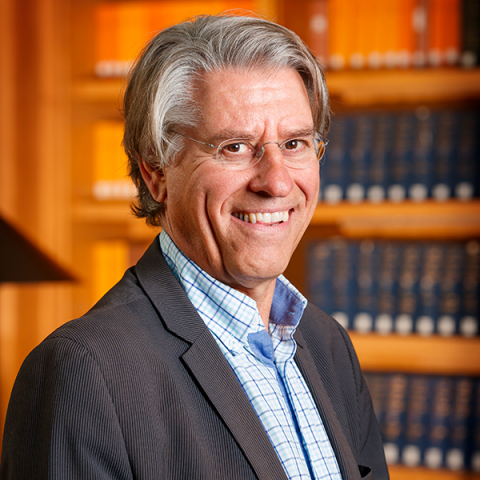
Professor von der Dunk presents at various conferences
09 Aug 2023
Professor Frans von der Dunk has recently presented and taught at a number of events over the spring and summer. On April 12, he participated in an online symposium hosted by Cleveland State University's Global Space Law Center, focusing on "Law & Policy Issues in the New Orbital Economy" during a session on Orbital Human Spaceflight & Private Space Stations. Von der Dunk was also featured in various panels during Boston Space Week in April, providing legal expertise in panels discussing the future of human settlements on the Moon and Mars and the Artemis Accords.
Over the summer, he presented in an online webinar organized by the UK law firm Volterra Fietta, where he provided insights on mega-constellations and space debris. He also presented an online lecture to students at Paris Cite Université, discussing "Satellite Communications and 'the Law'" as part of their LLM program on International Law, and guest lectures to students at Vrije Universiteit's summer course on Artificial Intelligence and Space Law in Amsterdam. Continuing his international engagements, he also guest lectured about the legal aspects of military space use during "Space and Technology 4All" at Aristotle University in Thessaloniki, Greece, and space law during the summer program at Xiamen Academy of International Law in China.
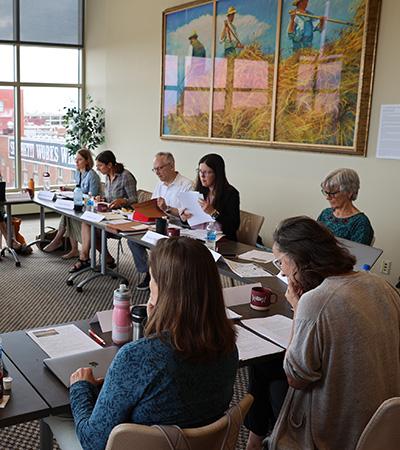
Touching base with the Rural Reconciliation Project
08 Aug 2023
Launched in 2021, the Rural Reconciliation Project is a research and engagement initiative hosted by the University of Nebraska College of Law. Led by co-creators and Nebraska Law professors Jessica Shoemaker and Anthony Schutz, the Project pursues an honest accounting of rural past and present, while looking toward a more vibrant rural future. The Project is supported in part by an Andrew Carnegie Fellowship awarded to Shoemaker from the Carnegie Corporation of New York.
The Project fundamentally aims to create space for more truthful, critical assessments of what has transpired and is transpiring in rural America. Since its founding, it has been a catalyst for conversation in the rural and legal spheres.
"We started the Rural Reconciliation Project as a way to leverage our common concerns for rural people and places," Shoemaker said. "The Project has really become an active space of ongoing collaboration across academic disciplines, with scholars from different areas of expertise sharing important ideas and new thinking around some of rural America’s biggest challenges, from climate change to rural poverty to changing population dynamics."
Programming Recap
In the first year of the Rural Reconciliation Project, a virtual seminar series set out to facilitate more robust engagement around some of the difficult questions facing rural America, including rural access to justice and whether policymakers should engage with rural people and places in distinct ways.
Later that year, national experts convened for the Rural Infrastructure Series, where discussions focused on the structure and purpose of infrastructure investments. Conversations were organized around the themes of jobs, power, transportation, broadband, and water, and participants spoke about who benefits from rural infrastructure decisions and why.
"Our programs bring together scholars from different fields to talk about their work and how it relates to rural and give other scholars ideas about what they might draw from other disciplines," said Schutz.
This fall, the Project’s Law and Rurality Workshop returns for a third consecutive year. Past topics of discussion include the state of rural education, aboriginal title and private forest lands, and access to counsel in legal deserts. These workshops are co-led by Shoemaker, Schutz, and Professor Hannah Haksgaard at the University of South Dakota Knudson School of Law.
Land and Water: Rural Resources, Rural Livelihoods
Much of this year’s programming has been centered around the theme of “Land and Water: Rural Resources, Rural Livelihoods.” This series asks the question: “Who really owns rural America?” It looks to address the ongoing pattern of essential rural resources being decoupled from rural livelihoods and analyze the changing ownership patterns of land and water.
In January, Nebraska Law hosted anthropologist Lucas Bessire for a discussion of his award-winning book, Running Out: In Search of Water on the High Plains, which offers a uniquely personal account of aquifer depletion and the complex layers of law, economics, culture, and history that have shaped the current environmental crisis.
In April, Schutz and Shoemaker were joined by Neil Hamilton, Emeritus Professor of Law and former director of the Agricultural Law Center at Drake University, for a panel titled “Agriculture, Food, Land and Water in the Great Plains.” Part of the larger Plant to Table conference hosted by the Center for Great Plains studies, the panel discussed how the law has shaped land and water use for agriculture on the Great Plains.
Most recently in the Land and Water series, Shoemaker hosted a workshop and roundtable on issues of land and water concentration, commodification, and financialization. In addition to hosting, she also presented her current project, “Re-Placing Property.” Schutz also participated, discussing his work on South Platte River controversies.
"The workshops we do feature scholars from not only different disciplines, but from different countries. There were varying levels of seniority and experience and of course methodologies," added Shoemaker. "It was a great opportunity to have rich conversations with people who think about rural places in different but related ways."
The Rural Review
In conjunction with these programs, the Rural Reconciliation Project’s Rural Review serves as a hub for rural research from across academic disciplines. The Review is an online journal that regularly publishes short summaries of this work, distributing periodic roundups of rural news and events, as well as blog-style scholarly commentary.
Review topics have ranged from discussions of rural political alienation to intimate views of problem-solving encounters in some rural courts. Other digests explore everything from the evolution of federal land titles to the development of Utah water infrastructure. Recent posts also discuss water security in the Colonias and rural journalism rescue.
As the Project continues to explore the complex issues facing rural America and possible ways forward, so will it continue the search for rural identity and a greater understanding of rural communities. To keep up with the Project and receive updates about news and events, subscribe to the newsletter.
